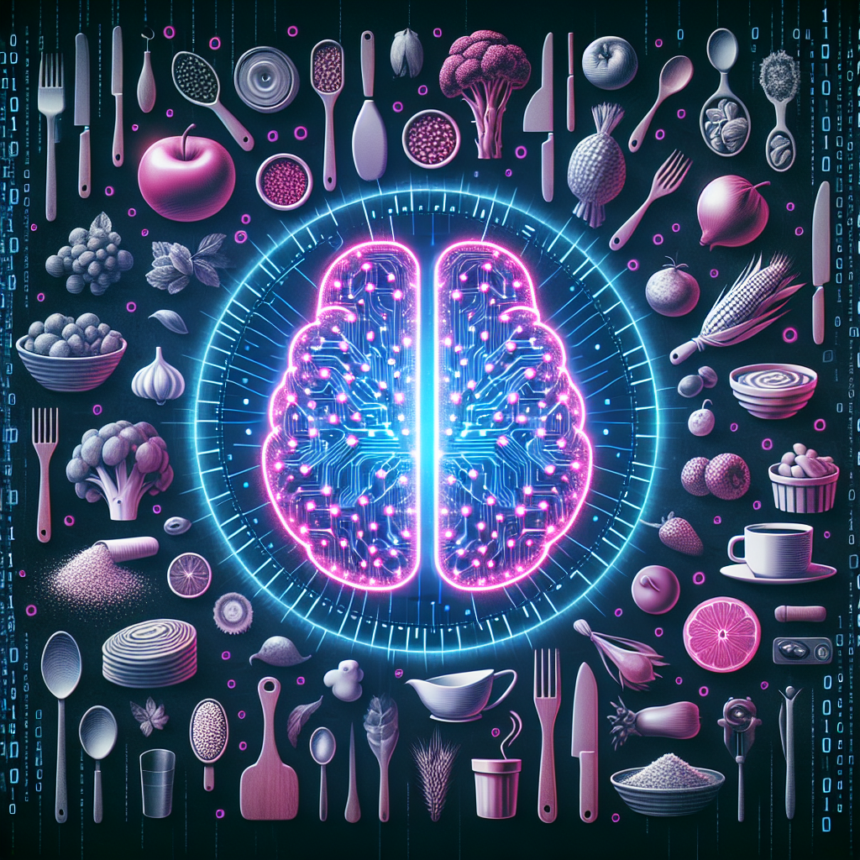The culinary landscape is undergoing a remarkable transformation, driven by the advent of artificial intelligence (AI) in the food industry. From farm to table, the integration of advanced technology is enhancing food production, improving supply chain efficiency, personalizing dining experiences, and even shaping the way we approach nutritional science. As we delve into the intersection of taste and technology, it is evident that AI is revolutionizing how we perceive and consume food.
Precision Agriculture
The journey of food begins at its source: agriculture. AI is increasingly making waves in farming practices through precision agriculture. Sensors, drones, and satellite imagery are being utilized to gather data on soil health, moisture levels, and crop health. AI algorithms can analyze this data to provide actionable insights, enabling farmers to optimize planting schedules, irrigation, and fertilizer application. For instance, a company like Corteva Agriscience is using AI to maximize crop yields while minimizing environmental impact.
This level of precision not only improves production but also promotes sustainability. Farmers can reduce waste and enhance resource efficiency while addressing the growing global food demand projected to increase by 60% by 2050. The fertility of our lands and the future of food security are now closely tied to AI advancements.
Supply Chain Optimization
Once food is harvested, the complexities of distribution begin. AI is playing a crucial role in streamlining supply chains, ensuring that food reaches consumers in the freshest state possible. Algorithms can predict demand patterns by analyzing historical sales data, seasonal trends, and local consumer preferences. This forecasting capability allows suppliers and retailers to adjust their inventories accordingly, reducing food waste and ensuring that shelves remain stocked.
Sourcing and logistics are also smarter thanks to AI. Companies like IBM Food Trust utilize blockchain technology alongside AI to provide transparency throughout the supply chain. This not only builds trust with consumers but also allows for quick responses to food safety issues, making recalls more efficient and effective.
Enhancing Food Production
AI technology is not just about efficiency; it’s also a tool for innovation. In food production, AI can create new flavors, optimize recipes, and even discover novel ingredients. Food tech companies such as Brightseed harness AI to explore plant compounds within ingredients, discovering potential health benefits and applications. For instance, they’ve developed a platform that identifies bioactive compounds in plants, paving the way for healthier food and beverage options.
Moreover, AI is assisting chefs in crafting culinary masterpieces. Chef Watson, developed by IBM, is capable of analyzing thousands of recipes and flavor profiles to suggest novel combinations that a human chef may never consider. This creative synergy between traditional culinary arts and AI leads to groundbreaking dining experiences that marry science and taste.
Personalized Nutrition
One of the most significant impacts of AI in the food industry lies in personalized nutrition. Consumers are becoming increasingly aware of their dietary needs and preferences. AI-powered applications can analyze individual dietary habits, health conditions, and personal goals to recommend tailored meal plans and recipes.
Companies like Nutrino are at the forefront of this trend, employing AI to provide personalized nutrition advice based on a user’s health data and preferences. Such tailored recommendations empower consumers to make informed choices about their diets, improving overall health and well-being.
Conclusion
The infusion of AI into the food industry is a dazzling showcase of how technology can harmonize with culinary arts. From optimizing agriculture and ensuring efficient supply chains to enhancing food production and personalizing nutrition, AI is revolutionizing the way we interact with food. As the industry continues to evolve, one can only imagine the possibilities that lie ahead, where taste meets tech in ever more innovative ways.
FAQ Section
Q1: How is AI making agriculture more efficient?
A1: AI enhances agriculture by utilizing data from sensors and drones to analyze crop health, soil condition, and environmental factors. This allows farmers to optimize planting schedules, irrigation, and fertilization, leading to higher yields and reduced waste.
Q2: What role does AI play in food safety?
A2: AI facilitates supply chain transparency and rapid response to food safety issues. Technologies like blockchain, combined with AI algorithms, track food from farm to table, ensuring that any contaminants are quickly identified and addressed.
Q3: Can AI help with recipe development?
A3: Yes! AI systems like Chef Watson analyze vast amounts of culinary data to suggest new flavor combinations and recipes, aiding chefs in their creative processes and pushing culinary boundaries.
Q4: How does AI contribute to personalized nutrition?
A4: AI applications can analyze a user’s dietary habits and health data to provide tailored meal plans and nutrition advice. This personalization helps individuals achieve their health goals more effectively.
Q5: What is the future of AI in the food industry?
A5: The future of AI in the food industry looks promising, with ongoing innovations expected in areas such as automation in food production, enhanced food safety protocols, and even virtual dining experiences, as the technology continues to evolve and integrate into everyday culinary practices.










